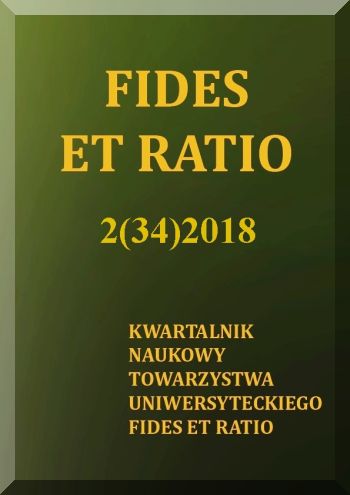Abstract
"Integration" has now become one of the most frequently raised slogans and postulates. It can be related to individuals and collectively. Although it means "to merge", "to unite", "at the same time", it is the concept used much more commonly than its synonyms. One could ask if the cause is not
a desire to protect yourself against such a literal, "merging" meaning. Its full acceptance would require thinking in terms of real, deep unity, not just superficial compilation of parts into a problematic, often apparent whole. Multilateralism does not necessarily lead to integration. In a way it concerns the inner development of a man who can seek integrating him "integrity" in the directional vision of humanity, or in the multiplication of experiences, competences, forms of activity and goals. In educational activities, the essence of which is to support development, the sense of "integrating" processes and activities is of great importance. It is possible to call the combination of various, incoherent stimuli, actions, situations by calling it "integration" to create an impression or cause unfounded belief that this way creates a new, more valuable quality. This quality is then more connected to the external "overall" form of action rather than supporting the integral development of the pupil. The reflection on the sense of the integrity of development becomes so important and urgent today in upbringing.
References
Chrobak S., (2016), O aktualności przesłania Deklaracji o wychowaniu chrześcijańskim Gravissimum educationis. W kręgu idei. In the circle of ideas, nr 3(61), s. 145-156.
Fromm E., (2017)., Mieć czy być., przeł. J. Karłowski, Poznań: Dom Wydawniczy Rebis.
Hessen S., (1997), O sprzecznościach i jedności wychowania. Zagadnienia pedagogiki personalistycznej, Warszawa: Wydawnictwo „Żak”.
Jan Paweł II, (2008), Przemówienie w siedzibie UNESCO, Paryż, 2.06. 1980, (w:) Przemówienia
i homilie Ojca Świętego Jana Pawła II, (s. 279-289), Kraków: Wydawnictwo Znak.
Kunowski S., (1993), Podstawy współczesnej pedagogiki, Warszawa: Wydawnictwo Salezjańskie.
Nowak M., (2003) Pedagogika personalistyczna, (w:) Z. Kwieciński, B. Śliwerski (red.), Warszawa: Wydawnictwo Naukowe PWN SA.
Olbrycht K., (2012), Wychowanie do wartości – w centrum aksjologicznych dylematów współczesnej edukacji. „Paedagogia Christiana”, nr 1 (29), s. 89-105.
Rynio A., (2004), Integralne wychowanie w myśli Jana Pawła II, Lublin: Wydawnictwo KUL.
Socha P., (2000), Psychologia rozwoju duchowego – zarys zagadnienia. (w) P. Socha (red.) Duchowy rozwój człowieka. Fazy życia, osobowość, wiara, religijność, (s. 15-33), Kraków: Wydawnictwo Uniwersytetu Jagiellońskiego.
Skowronek K., Pasek Z., (2013), Nowa duchowość w kulturze popularnej. Studia tekstologiczne. Kraków: Wydawnictwo LIBRON – Filip Lohner.
Szyszko-Bohusz A., (2013), Pedagogika holistyczna oraz samodoskonalenie osobowości
i bezpieczeństwo w dobie globalizacji, „The Polish Journal of the Arts and Culture”, nr 7, (4), s. 201-215.
Wojtyła K., (1994), Osoba i czyn oraz inne studia antropologiczne. Lublin: Towarzystwo Naukowe KUL.
Znaniecka M., (2016), Kategoria duchowości i jej wybrane parafrazy w pedagogice. Gdańsk: Wydawnictwo Uniwersytetu Gdańskiego.
Inne:
http://rodziceprzyszlosci.pl/misja-wizja/
Idea integralnego rozwoju – sposób na wychowanie szczęśliwego dziecka. http://polki.pl/rodzina/dziecko,idea-integralnego-rozwoju-sposob-na-wychowanie-szczesliwego-dziecka,10397581,artykul.html
